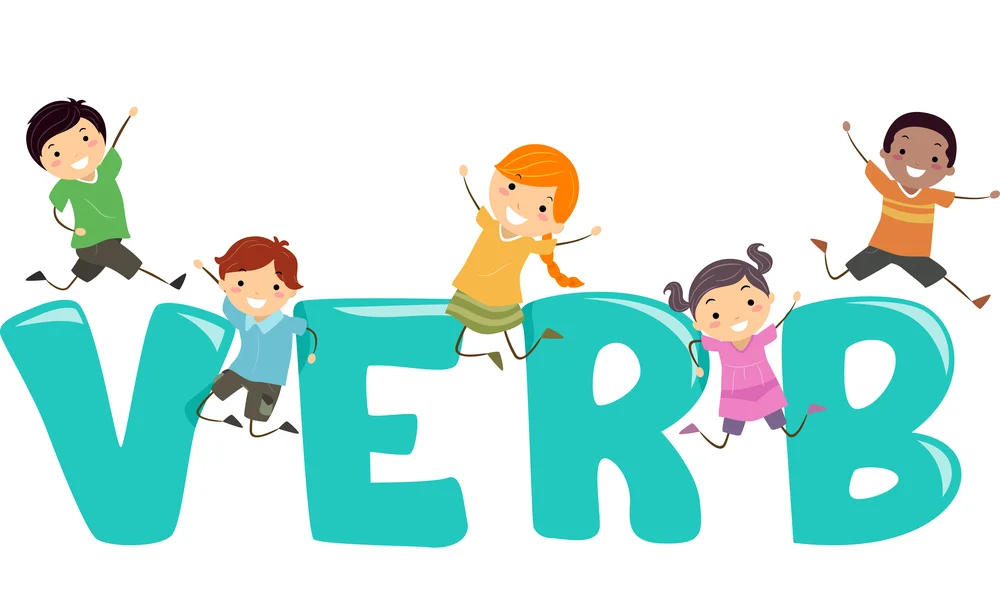Do you recall a period in grade school when your teacher assigned you to write an essay or a short story? You had no idea you were developing a superpower that would be crucial in your future career at professional content writing agency.
Any idea what that is?
It is the capacity to use verbs in the right place at the right time in content writing.
Verbs – Making an impact on compelling content
Your sentences can be completely transformed by the use of verbs. Because of the widespread use of dull, weak, and inefficient language, your content will stand out thanks to the lesson you acquired in grade school.
Cutting out those unnecessary, weak verbs will make your content more impactful. This smart usage of verbs by a professional content writing agency is more likely to inspire readers.
Do you need some interesting ideas for including strong verbs in your writing? Then look over these below suggestions and the associated before-and-after examples.
But let’s cover some basics first.
What are verbs?
Verbs are essential parts of speech. They represent actions, states, or occurrences in a sentence. They play a crucial role in conveying the main action or the subject’s state of being.
For example
- “We read the newspaper”
Here, ‘read’ is a verb
- “Jane felt sleepy after a tiring day at work”
Here, ‘felt’ is a verb
Verbs provide the below uses in a sentence.
- Verbs help provide clarity,
- They convey information, and
- They also add depth to the meaning of the sentence.
Without verbs, sentences would lack life and purpose. This would make them incomplete and difficult to comprehend.
What are the Different Types of Verbs?
Verbs are essential parts of speech that represent actions, states, or occurrences in a sentence. They play a crucial role in conveying the main action or the subject’s state of being. Here are a few examples of verbs.
a. Action Verbs
These verbs express physical or mental actions performed by the subject. The below are some good examples.
– “Run”- The athlete runs on the track, displaying incredible speed.
– “Write”- The author writes captivating stories that enthral readers.
– “Sing”- The talented singer sings melodiously, captivating the audience.
b. Linking Verbs
These verbs connect the subject to the subject complement, which can be either an adjective or a noun, describing the subject’s state of being. Here are some good examples.
– “Is”- The cake is delicious, tempting everyone with its delightful aroma.
– “Feel”- Sarah feels happy after achieving her goals, her face glowing with joy.
– “Seem”- The situation seems complicated, requiring careful analysis.
c. Modal Verbs
Modal verbs express possibilities, permissions, abilities, or obligations in a sentence. Examples include-
– “Can”- Jane can play the guitar skilfully, mesmerizing her audience with each strum.
– “Should”- Students should complete their assignments on time to excel academically.
– “Must”- Drivers must follow traffic rules to ensure road safety for everyone.
Verbs are crucial in sentence construction. They assist in giving clarity and meaning to the message conveyed in content writing.
How verbs impact content writing?
Verbs play a crucial role in content writing. They boost the overall quality and effectiveness of the written piece. Let us check out some ways in which verbs have a tremendous impact on content writers.
a. Engagement and Clarity
Dynamic and descriptive verbs can captivate readers. They make the content more engaging. They paint a vivid picture in the reader’s mind. This helps make the content writing more appealing and memorable.
Content writing agencies use active verbs to make their writing clear. It contributes to clarity by providing a clear indication of the action and the subject performing it.
b. Tone and Voice
The choice of verbs can influence the tone and voice of the content. Content writers abide by Google E-A-T guidelines for making authoritative content. Use of assertive verbs convey confidence and authority. This makes their writing more persuasive.
On the other hand, gentle or subtle verbs can create a more comforting or empathetic tone.
c. Storytelling and Narrative
Verbs are essential for effective storytelling and building a compelling narrative. Action verbs drive the plot forward. This way, they keep readers hooked to know what happens next.
Well-chosen verbs can evoke emotions and create a connection between the reader and the content.
d. SEO and Search Ranking
In digital content writing, using relevant and targeted verbs can enhance SEO (Search Engine Optimization). Properly optimized verbs can improve the visibility of the content in search engine results. This works wonders in driving more traffic to the website or blog.
Experts say that the longer a customer stays on, reading your content, the better will be your search rankings. And verbs will help improve the dwell time, as the content is to the point and concise.
e. Emphasis and Call to Action
Verbs are vital for creating compelling calls to action (CTAs) in marketing content. Powerful action verbs prompt readers to take specific actions, such as “buy now,” “subscribe,” or “register.” This enables better conversion rates for the website.
So directly or indirectly, the smart usage of verbs can add to your business bottom lines.
How to use verbs smartly in content writing?
We’ll look at how using active verbs, cutting down on connecting words, and embracing novel ideas can change content creation by rediscovering the power of childhood imagination.
a. Know the subject for an active verb
Many content writers overuse passive verbs. This dilutes the efficacy of the message tremendously. Instead, they need to make use of passive verbs only when the subject is not known.
For example, let us consider this sentence.
“Richard was awarded the Gold medal in Badminton.”
(Awarded by whom = ‘unknown’ here)
Here, passive verb “was awarded” is ok to use.
But now consider another example
“Richard was awarded the Gold medal in Badminton by the local City Council.”
Now, we know the subject = local City Council. Hence using passive verbs here would weaken the sentence.
Instead, you can refine it by rewriting it as an active voice sentence
“The local City Council awarded Richard a gold medal in Badminton.”
b. Choose Strong and Descriptive Verbs
As a professional content writer, you should go for powerful and descriptive verbs. they will vividly convey the action or state and leave an impression on readers’ minds. Avoid using weak or generic verbs that can make your writing bland and less engaging.
For example:
Weak verb- “He did some work.”
Strong verb- “He accomplished the Cotton Green project on 30th July 2023.”
c. Vary Verb Tenses
Use a mix of verb tenses in your content. they will successfully add depth and variety to your content. Different tenses can help convey past events, ongoing actions, or future possibilities.
For example:
Past tense- “She completed the assignment yesterday.”
Present tense- “She completes assignments regularly.”
Future tense- “She will submit the report tomorrow.”
d. Show, Don’t Tell
Use verbs to show actions and emotions. This is a much better alternative to telling them outright. This technique makes your content writing more immersive. it allows digital content readers to experience the content more vividly.
For example:
Telling- “She was happy.”
Showing- “Her face lit up with joy.”
e. Avoid Verb Redundancy
Eliminate unnecessary verb redundancies. Also try not to use auxiliary verbs excessively. Keep your writing concise and impactful by choosing the most relevant verb for each situation.
For example:
Redundant- “She clapped her hands together with excitement.”
Concise- “She clapped her hands with excitement.”
f. Make verbs more explicit
The US government has a webpage devoted to successful writing. They strongly criticize the use of hidden verbs
A hidden verb (or nominalization) is a verb that has been converted into a noun and often requires another verb to make sense.
For example,
‘Can you make a suggestion about upcoming movies to watch’ is longer and more ambiguous than ‘Can you suggest upcoming movies to watch?’
According to the Writing Cooperative, hidden verbs usually end in -tion, -sion, -ment, -ance, or -al. Here’s an illustration:
Before- The Federal authorities conducted a raid on several suspects’ homes.
After- The Federal authorities raided several suspects’ homes.
As a general rule of thumb, it is wise to avoid using hidden verbs, which often end in -tion, -sion, -ment, -ance, or -al.
To sum it up
A professional content writing agency needs to keep pushing high quality content to maintain a competitive edge over its industry peers. Strong command over language is one such principle that separates the best content writers from the rest.
The correct use of verbs is perhaps one of the most telling examples of how you can
strengthen the content written for your own brand or for a client. All of us may have learnt about verbs in high school grammar. But very few practice it in the real world.
The smart use of verbs can lend better clarity and maintain a crisp tone of voice in the content. In this post, we took a look at some actionable ways to leverage verb usage to the maximum and generate more benefit from a sharp, well-written piece of content.
If you too need such concise and clear content to convey your brand message, then get on board the professional writing team from Textuar. Our team brings several years of experience to help provide superior quality content writing that brings brands closer to their target customers.
Connect with our professional content writing agency; we will show that we have not lost touch with high school grammar concepts like verbs!











